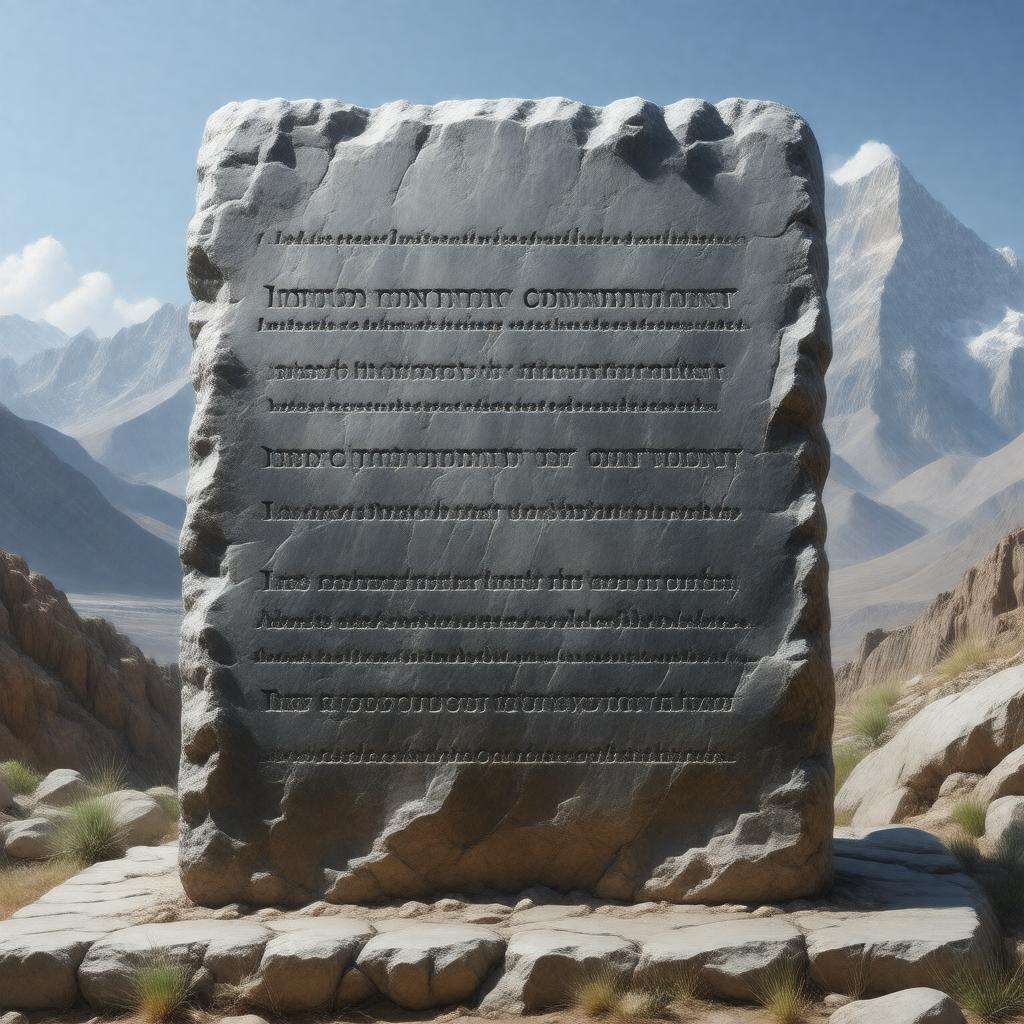Prompt
"Generate an image of a stone tablet with the Ten Commandments inscribed on it, set against a backdrop of a dramatic mountain landscape, specifically Mount Sinai, with a sense of reverence and solemnity, in a classic, realistic style reminiscent of traditional biblical illustrations."

